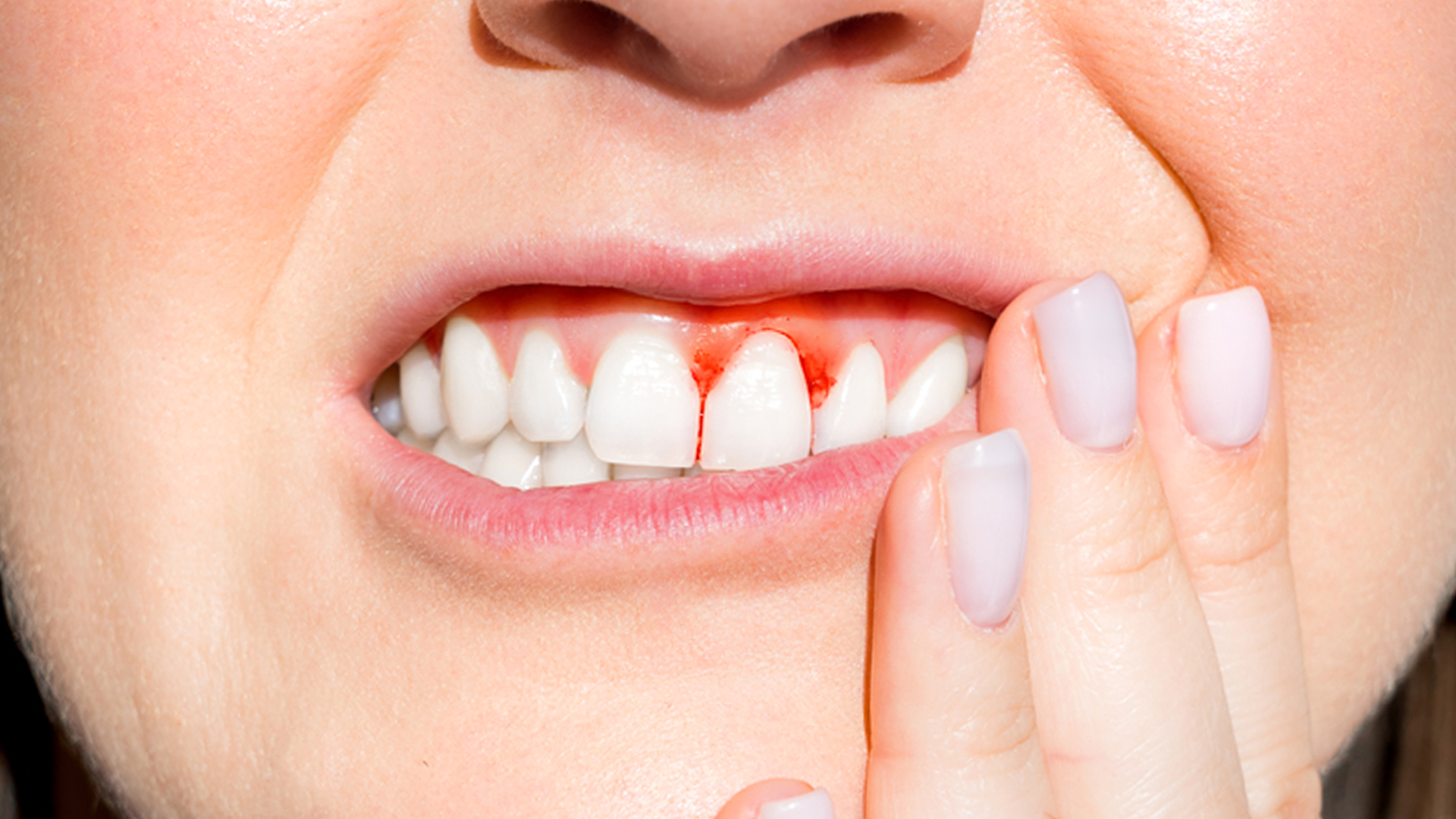
Bleeding gums
Causes of bleeding gums
Treating bleeding gums at home
How does the doctor treat cases of bleeding gums?
Conclusion
Bleeding gums
Ensuring oral hygiene with brush and toothpaste is a healthy habit that maintains the health and safety of teeth. But when I went to brush my teeth as usual, I noticed that the white toothpaste was mixed with a lot of red, and the reason for this was the presence of blood coming out of the gums and between the teeth. I cannot hide that the sight of blood frightened me and prompted me to visit the dentist the next day, who identified the condition as it was—bleeding in the gums.
What is bleeding gums?
Bleeding gums are mainly due to poor dental hygiene. Gingivitis is a disease that affects the gums and causes inflammation and bleeding of the gums, and it can be cured with appropriate treatment. However, if it is not treated it can lead to gingivitis, which can lead to bone loss surrounding the tooth that cannot be restored.
Causes of bleeding gums
Inquiry about the causes of bleeding gums is one of the most common questions among patients who come to our dental clinic. Because healthy gums should not bleed, the appearance of drops of blood when brushing is a mistake that can worsen the diagnosis in the future.
Gingivitis is a disease that arises as a result of bacterial infection in the gums. Symptoms appear when food debris is not removed properly. Gingivitis is now one of the most common oral diseases among adults.
This accumulation of food leads to the production of bacterial plaque, and with it, gingivitis and bleeding. Usually, gums bleed after brushing your teeth or eating solid food, such as apples, for example. Gingivitis is not a serious oral disease, as long as you go to the dentist as soon as possible for treatment.
Gums can bleed for various reasons such as:
- Poor oral hygiene.
- Brushing teeth vigorously
- Smoking.
- Gingivitis (early-stage gum disease).
- Diabetes.
- Hormonal changes during puberty, pregnancy, or menopause.
- Vitamin K deficiency.
- Vitamin C deficiency or scurvy (a severe form of vitamin C deficiency).
- Blood thinning medications (anticoagulants).
- Pernicious anemia.
- Thrombocytopenia.
- Hemophilia.
- Von Willebrand disease.
- Oral herpes.
- HIV/AIDS
- blood cancer.
- Inappropriate dentures or other dental procedures
important tips such as:
- Avoid using very hard toothbrushes.
- Not brushing teeth vigorously.
- To keep the gaps between your teeth clean, use floss.
- Reduce consumption of very cold or hot foods and drinks.
- Avoid irritating substances, as well as overly aggressive rinsing.
- Avoid alcohol and tobacco.
- Vitamin C deficiency can increase inflammation.
- Avoid excessive consumption of coffee, fats and sweets.
- Drink enough water.
- Stress causes plaque to build up on the teeth to a greater extent, making it easier to develop gingivitis.
Medical treatment for bleeding gums
Treatment for bleeding gums depends on diagnosing the underlying cause. If bleeding gums are a result of gum disease, your dentist will recommend appropriate treatment.
Common gum disease treatments include:
- Proper oral hygiene at home.
- Treatment with antibiotics.
- Deep cleaning of teeth.
- Orthopedic surgery (to reduce the size of the pockets around your teeth).
- Laser gum surgery.
- If you have bleeding gums but do not have gum disease, your dentist will need to find out the cause of your bleeding gums. Some tests may be recommended to diagnose diabetes, blood clotting disorders, vitamin deficiencies, or other health conditions. Once the correct diagnosis is known, the doctor will recommend the appropriate treatment.
Conclusion
Despite the widespread occurrence of bleeding gums among dental patients, it is a disease that is easy to avoid and prevent by simply following some necessary advice for dental health in general and avoiding some wrong practices related to dental hygiene. It can also be treated easily if you visit the dentist quickly, but neglecting the condition may lead to bad consequences such as Tooth loss.
See also: What is dental calculus cleaning?
Follow us on Instagram The Gentle Dentist
Sources
- https://www.webmd.com/oral-health/bleeding-gums-other-conditions
- https://www.healthline.com/health/bleeding-gums#takeaway
- https://my.clevelandclinic.org/health/symptoms/24908-bleeding-gums
- https://www.healthdirect.gov.au/bleeding-gums-and-dental-bleeding
- Myth or Fact? Everything You Need to Know About Teeth Whitening at Home
- Dental Implants: The Perfect Solution for Tooth Loss and Restoring Self-Confidence
- Secrets of a Healthy Mouth: Daily Habits That Protect Your Teeth from Cavities
- Thumb sucking in children and its effect on dental health.
- Benefits of regular teeth cleaning

